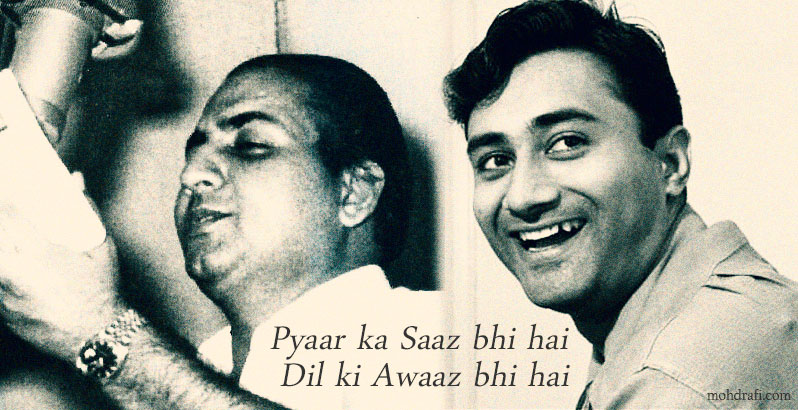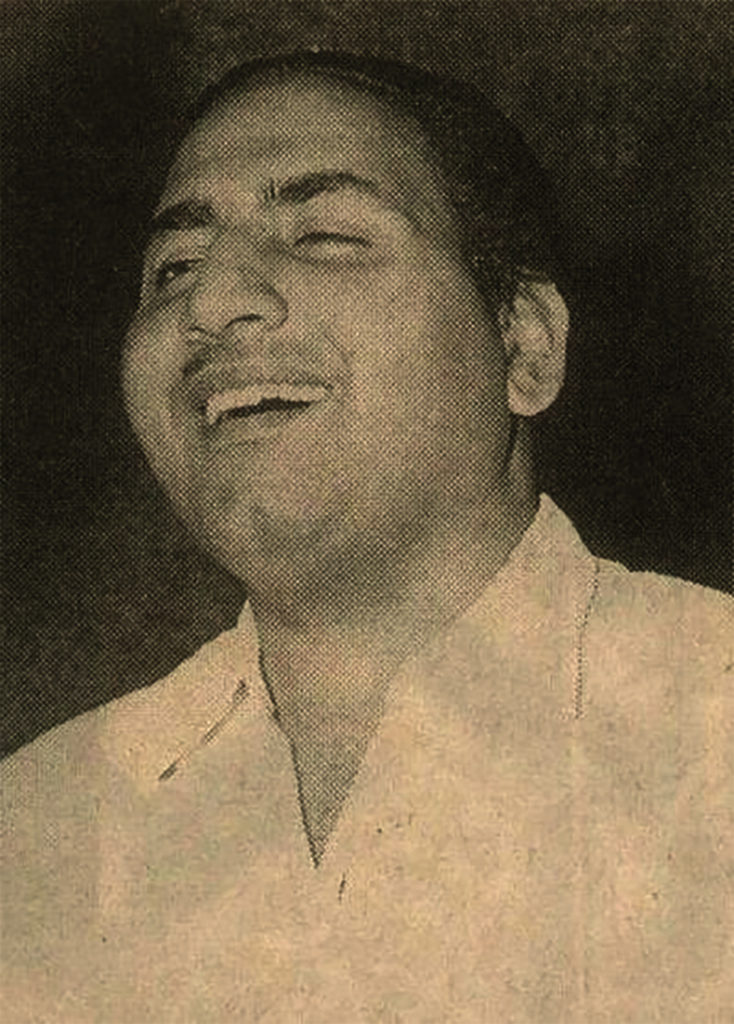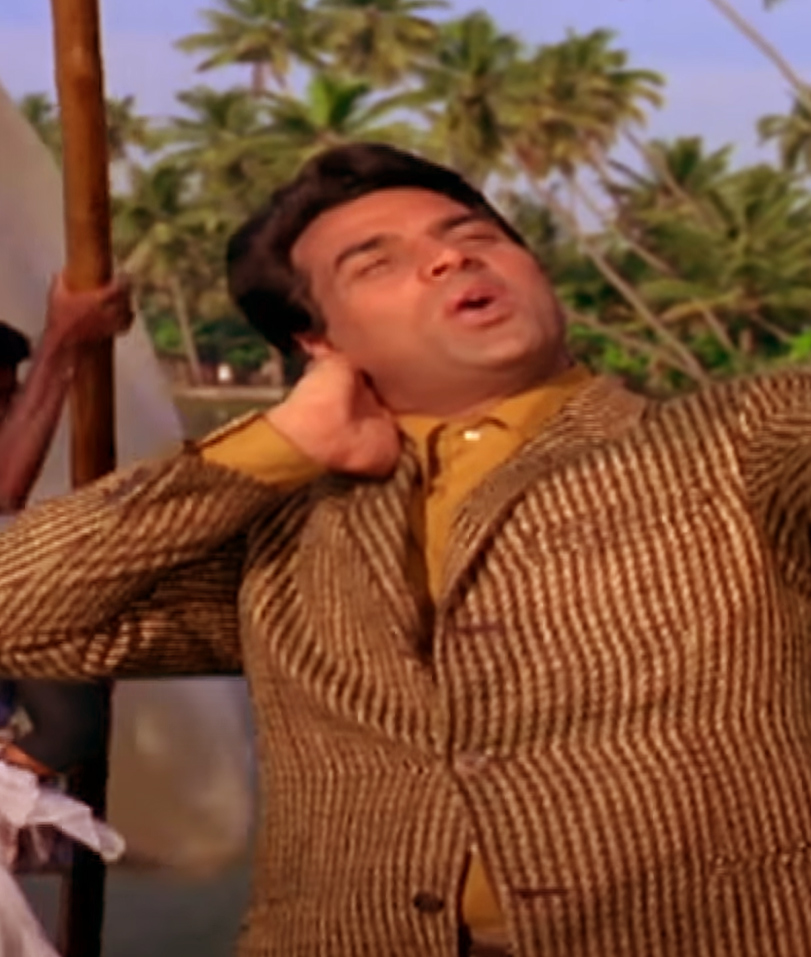Mohd Rafi Sahab – the Voice of Hope
By Achal Rangaswamy

Every year, on the 31st of July, the entire world comes to a standstill to pay homage to someone who has gone down in history not just as one of the greatest singers of all time but also one of the greatest human beings to have walked on earth.
There is no iota of doubt regarding Rafi Sahab’s impeccable command over the most difficult tunes and his versatility as a singer of each and every genre of playback singing. We are mere mortals when it comes to writing a commentary on that subject. But what one can discuss for hours and hours and days on end is the fact that Rafi Sahab sang not because he earned money from those songs but because he always wanted to. He perhaps wanted to spread a message. A message of love, a message of hope, and a message of optimism, for the thousands of heartbroken, downtrodden, despondent and utterly beaten and out individuals who perhaps could only look at life as a bane, a burden or a huge weight to lug along.
Otherwise why would Rafi Sahab have put his heart and soul into every number, every single song that he sang? I am sure he never sang for money, there are numerous stories of his just handing over the pay packet to a poor, needy or deserving individual. These people themselves have gone on record to mention this on various occasions.
Whether it was a reassuring Gham ki Andheri raat Mein, dil ko ne beqarar kar, subah zuroor aayegi, subah ka intezaar kar, or a highly optimistic Main Gaaoon Tum so Jaao, Rafi Sahab was the epitome of reassurance, a better future, and a ray of hope. How many times have I gone to sleep peacefully as the transistor beside me softly played the Shammi Kapoor song that he sings as a lullaby to all the kids in the movie Brahmachari. I was a little boy myself, and sometimes used to be troubled by all those tiny little issues that happen in the lives of little kids, like an impending class test or an important inter-class cricket match!

Ek Banjaara gaaye Jeevan ke geet Sunaaye. A song of great hope, a song about a great morrow, a song that inspires people to get up and get going and do their very best. Rafi Sahab lived that song. Kaagaz ke phoolon ko bhi joh mehka kar dikhlaye….. didn’t these very lines sound so apt for him? He brought so much hope into people’s lives.
Man re tu kaahe na dheer dharey is perhaps the most calming and reassuring song that tells one that there is a way to lead one’s life. Of acceptance, of calm acceptance of certain truths of life. Of detachment and abstinence from extremely greedy and selfish ideas of conquering everything that one perceives.
Even the song of denial that he sings as a repartee to the romantic pleas of his heroine, who longs his company, by saying Pehle in sabke liye ek imaarat garh loon phir teri maang sitaaron se bhari jaayegi….in Aaj ki Raat badi shokh badi natkhat hai. The protagonist is absolutely clear, he wants to create a new world. Of hope, of peace and of prosperity for the man on the street. A messiah of hope, and restoration and resurrection. Wasn’t Rafi Sahab sounding more like a Prophet than just a mortal who wants to win an election?
Lekin Hai Yakeen Aayegi Manzil, Taqdeer kahan le jaayegi, the song that sends out a clear message that life can be uncertain, ambiguous and complex, but deep down there is a way, and that way needs to be found and the journey undertaken. Par dil kehta hai gardish bhi aakhir toh kahin pahunchaayegi. A clear declaration that our heart shall guide us to our destination amidst the maze and the untrodden path.

O Majhi Chal from Aaya Saavan Jhoom Ke is another perfect rendition of a song of hope. Aaj toh peeche reh gaya hai, saamne hai kal O Majhi chal. Put the bad day behind you and look forward to a glorious tomorrow is what the song teaches us.
I could go on and on, but I prefer today to just turn on my music system and play all those songs of hope that Rafi Sahab gifted us from time to time.
Why did I bring up this topic for discussion today?
Because I cannot think of a more appropriate time to talk about Hope. Because the world seems and sounds so hopeless today. There is strife, there is inflation, there is unemployment in the true sense of the world, there is distrust, there is absolute intolerance, and there is a sense of despondence.
We need Rafi Sahab back in our lives.

A touching tribute to the legendary singer Mohammed Rafi. The article highlights the qualities that made Rafi Sahab a unique and unforgettable singer, focusing on his ability to infuse hope and positivity in his listeners through his music.
It explores the role that Rafi Sahab’s voice played in spreading positivity and hope in a world that can often be filled with darkness and despair. It discusses how his voice had the power to uplift listeners and provide them with a sense of hope and optimism.
The article also touches on the social and cultural impact of Rafi Sahab’s music, and how it resonated with people from all walks of life. His songs were not just popular among the masses, but also among the elite and the educated, a testament to the universal appeal of his voice.
One of the highlights of the article is how it showcases some of Rafi Sahab’s most uplifting and inspiring songs, such as “Main Zindagi Ka Saath Nibhata Chala Gaya” and “Aane Se Uske Aaye Bahar”. These songs capture the essence of Rafi Sahab’s ability to infuse hope and positivity in his listeners through his music.
The article also explores the challenges and hardships that Rafi Sahab faced in his personal life, and how he used his music as a way to find solace and hope. The article argues that Rafi Sahab’s own struggles and triumphs gave his music an added depth and emotional resonance.
Thank you for such a poignant tribute to one of the greatest singers in Indian cinema history. The article showcases the unique qualities that made Rafi Sahab a truly special and unforgettable artist, and how his music continues to inspire and uplift listeners even today. Fans of Rafi Sahab and Indian cinema music enthusiasts alike will appreciate the heartfelt and insightful analysis provided by Achal ji.